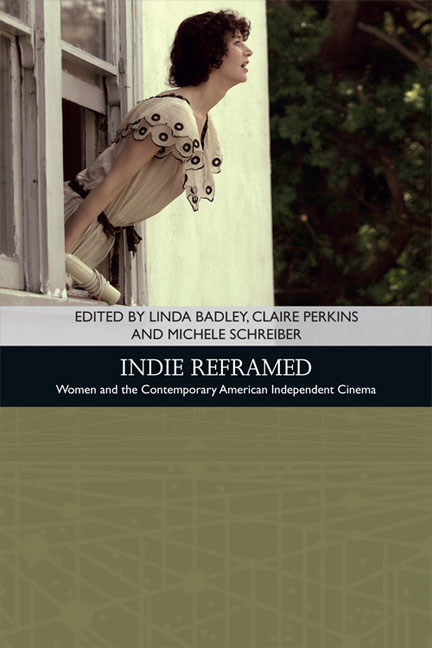11 - Having its Cake and Eating it Too: Contemporary American ‘Indie’ Cinema and My Big Fat Greek Wedding Reframed
Published online by Cambridge University Press: 10 November 2020
Summary
An industrial ‘rags to riches’ story, the phenomenal box office success of My Big Fat Greek Wedding (Joel Zwick, 2002), a small ethnic romantic comedy with an unusual production and distribution history, has rendered it an anomaly in the context of American indie film. Written by and starring Greek- American Nia Vardalos, who prior to this film had only a handful of acting credits, primarily in television, and no writing or other credits in film, My Big Fat Greek Wedding attracted significant producing power in the form of two well-capitalised independent companies, Gold Circle and Playtone. With only partial finance by HBO for a negative cost of just $5 million, and a theatrical release by niche film distributor IFC Films, the film nonetheless connected with a huge theatrical audience in the North American market. Released on 19 April 2002 in just 108 theatrers, My Big Fat Greek Wedding played for fifty-one weeks (until 13 April 2003), with forty-three of these weeks featuring in the list of the Top 20 films in the North American Box Office chart. Its final theatrical domestic gross was $241.4 million, placing it in the Top 5 films for 2002, and its worldwide gross was $368.7 million in total.
This remarkable performance places My Big Fat Greek Wedding in a very small group of similarly low-budget films that for a number of different reasons defied industry expectations and performed disproportionately well in the marketplace. The Blair Witch Project (Daniel Myrick and Eduardo Sanchez, 1999), Fahrenheit 9/11 (Michael Moore, 2004), The Passion of the Christ (Mel Gibson, 2004), Juno (Jason Reitman, 2007) and Slumdog Millionaire (Danny Boyle, 2008), among a few others, have had a similar trajectory in terms of connecting to a vastly larger audience than that anticipated by their producers and distributors, while also attracting wide media and other attention. However, partly because of their extraordinary commercial success, all these films have also faced strong criticism, with some even becoming the subject of a backlash, especially with regard to their status as independent.
- Type
- Chapter
- Information
- Indie ReframedWomen's Filmmaking and Contemporary American Independent Cinema, pp. 188 - 203Publisher: Edinburgh University PressPrint publication year: 2017



